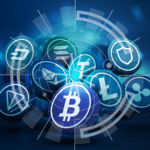After weeks of intense diplomatic efforts aimed at securing a ceasefire between Israel and Hezbollah, the U.S. has shifted its approach, deciding to let the conflict in Lebanon unfold. This change comes amidst escalating military actions including the Israeli ground operations that commenced on October 1 and significant airstrikes that targeted Hezbollah’s leadership.
Here’s a breakdown of the situation:
- U.S. and France’s Initial Position: Initially, the U.S. and France called for a 21-day ceasefire to prevent an Israeli invasion of Lebanon. This plan was disrupted following the assassination of Hezbollah leader Syed Hassan Nasrallah by Israel.
- Change in U.S. Stance: The U.S. has withdrawn its call for a ceasefire, with State Department spokesperson Matthew Miller expressing support for Israel’s actions to “degrade Hezbollah’s infrastructure” in pursuit of a “diplomatic resolution.”
- Conflict Dynamics: The conflict has intensified with Israel’s military campaign in Lebanon, aimed at weakening Hezbollah, which is backed by Iran. This action has raised concerns about potentially provoking a broader regional war.
- Political and Military Developments:
- Israel has continued its military operations despite international calls for a ceasefire.
- The U.S. supports these operations as part of a strategic move to weaken Hezbollah and reduce Iran’s influence in the region.
- Risks and Complications:
- There’s a risk that increasing military actions could lead to a power vacuum in Lebanon or trigger a wider regional conflict.
- Experts like Jon Alterman and Aaron David Miller have pointed out the complexities and potential unintended consequences of the U.S.’s approach.
- Long-term Goals: The U.S. aims to enforce UN Security Council resolution 1701, which involves a peacekeeping mission to maintain a demilitarized zone in southern Lebanon. However, the continuation of fighting poses significant challenges to peacekeeping efforts.
This situation represents a critical moment in Middle Eastern politics, where military strategies are being prioritized over diplomatic interventions, with significant implications for regional stability and international relations.










